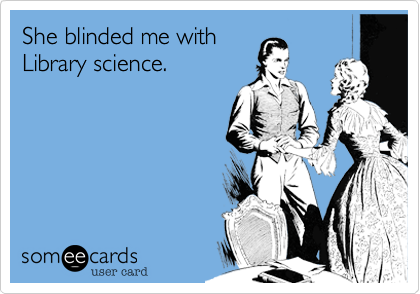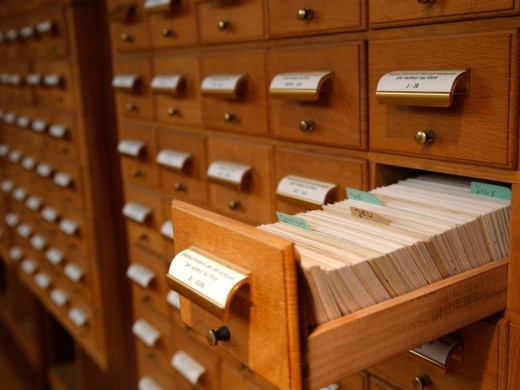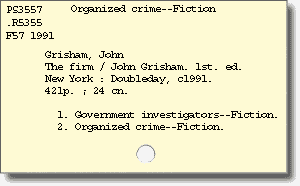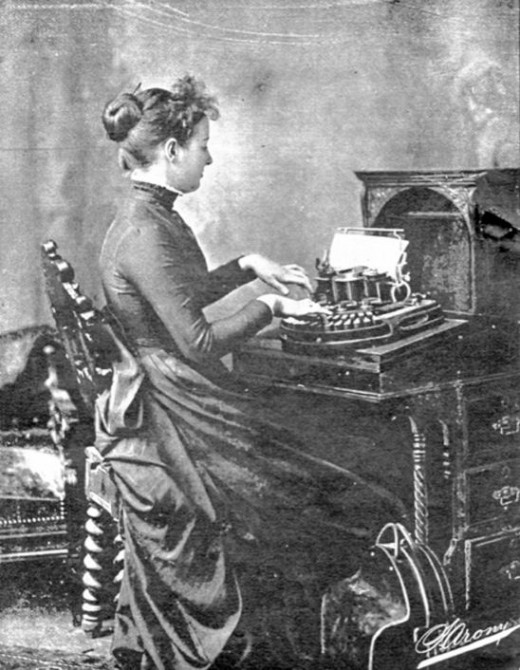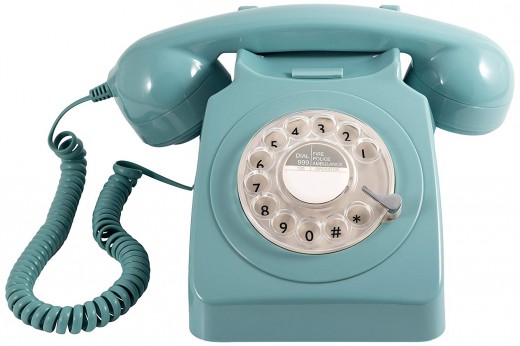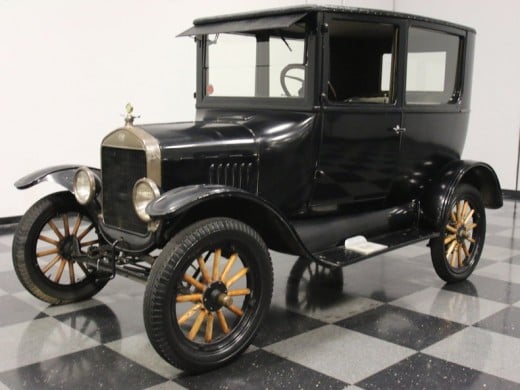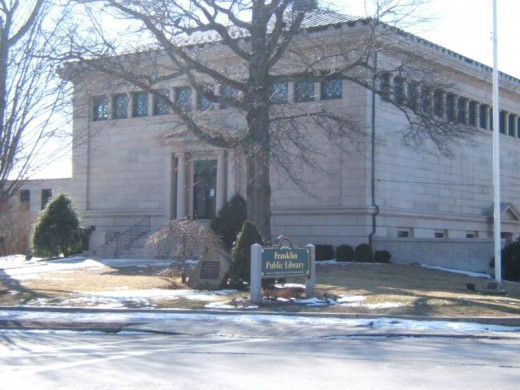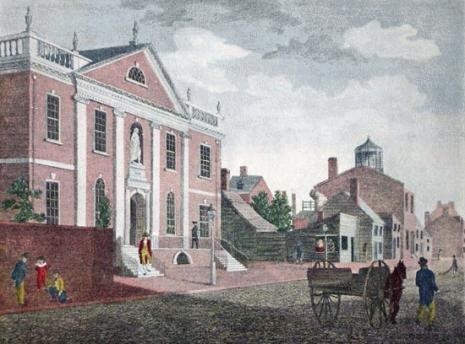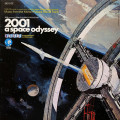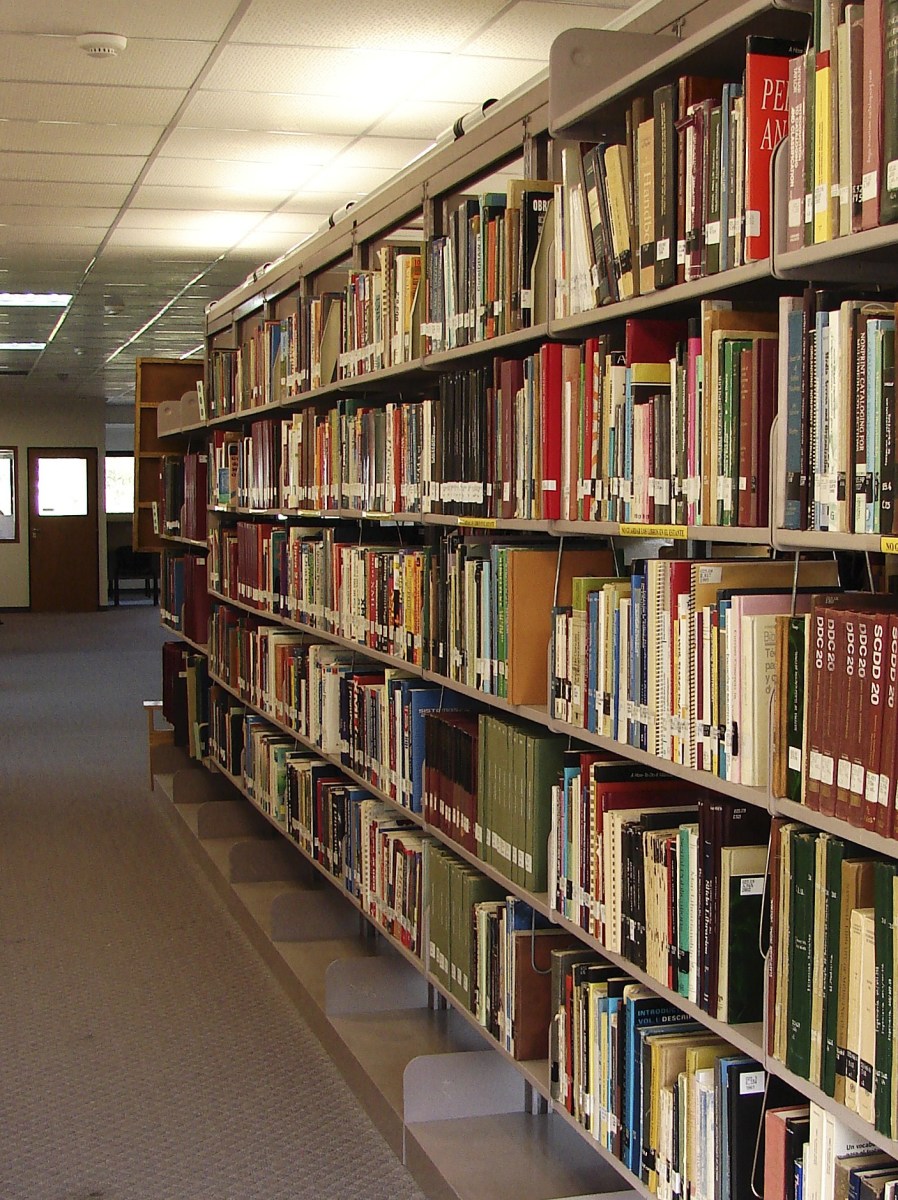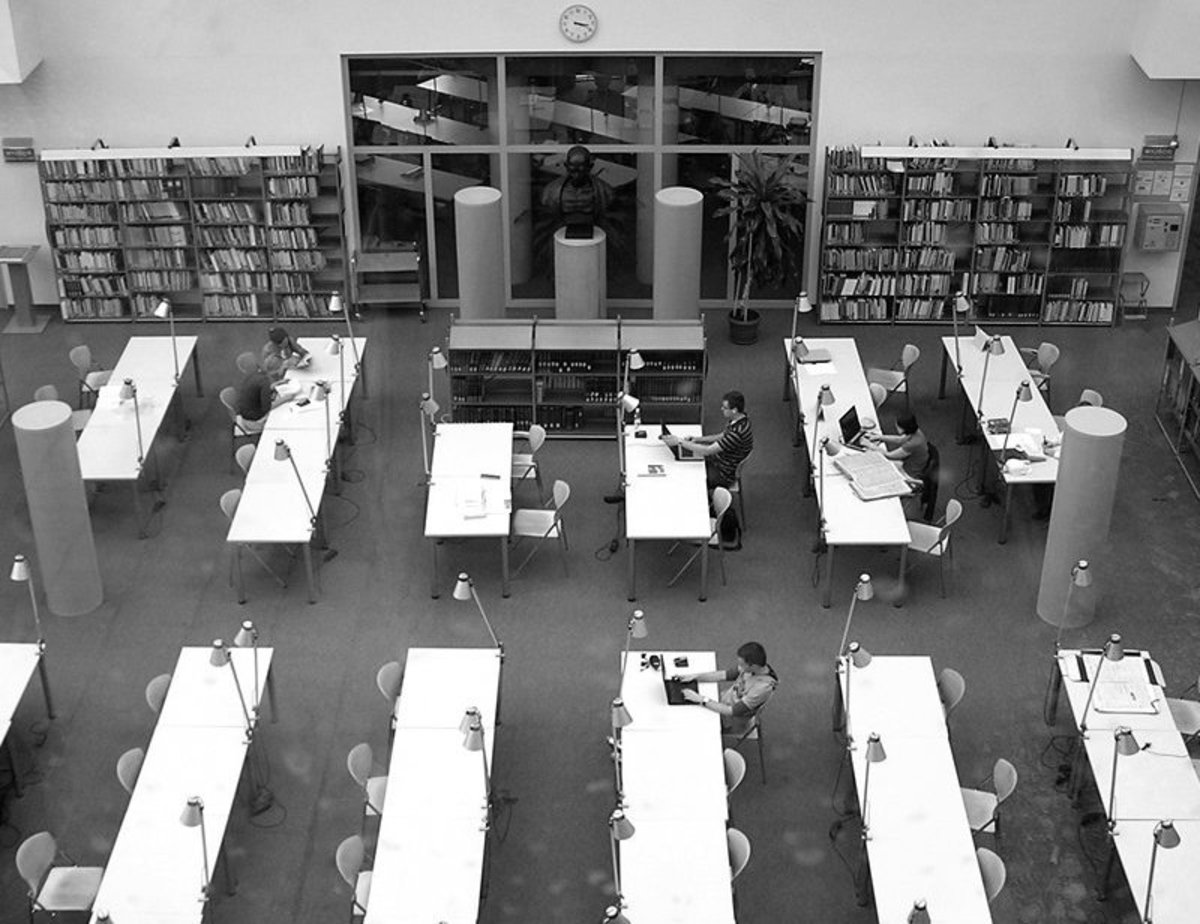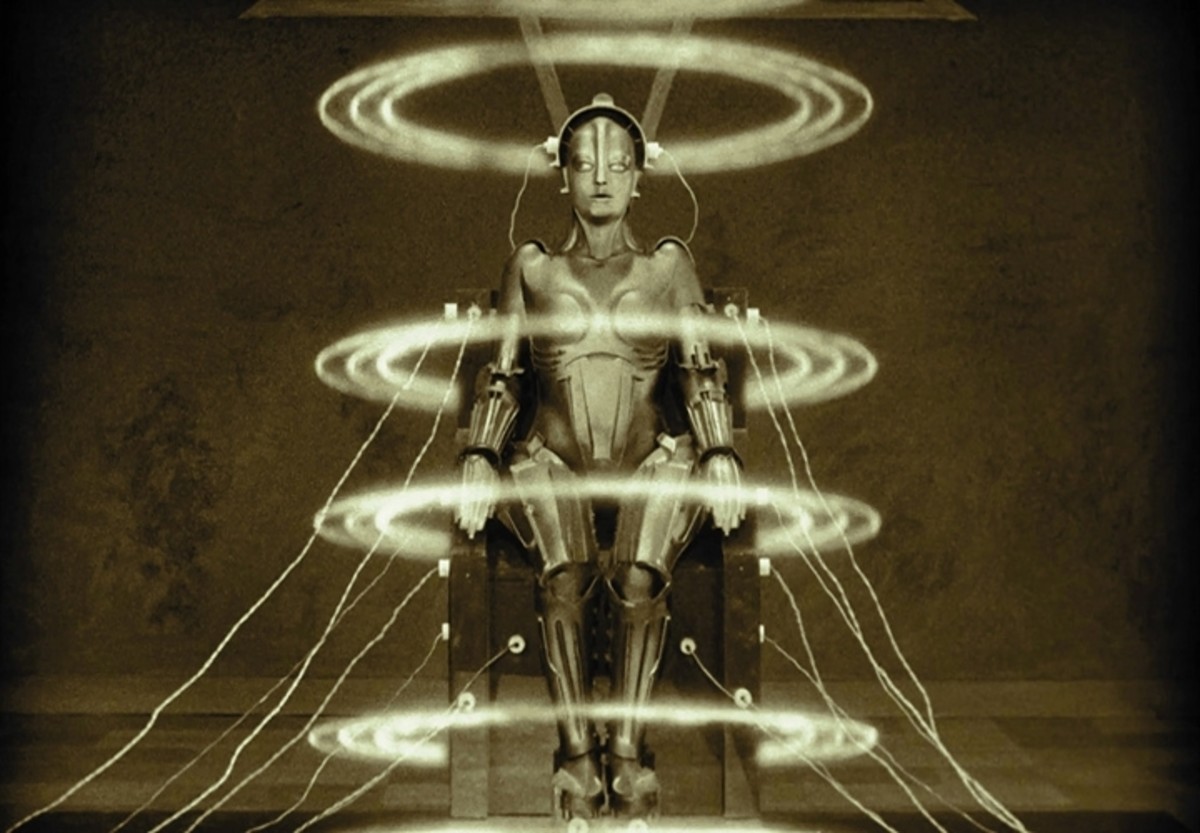What is Library Science?
Library Scientist
Click thumbnail to view full-size



Library Science
The phrase "library science" may sound a bit peculiar. Some may consider it an oxymoron because libraries are about books that you read. Science is a subject where you wear white lab coats and watch things grow in a small glass dish.
However, the word science is often tagged on to other fields of study: Political Science for example is a phrase sometimes tossed around college campuses, with a slight air of sophistication. Military Science is the study of wars and war mongering, popular among circles of young men and women wearing proud uniforms.
Is there a science to libraries? Is there anything scientific about buildings where the all the knowledge in the world is housed?
Certainly. Yes.
Early Librarians at the Library of Alexandria
Click thumbnail to view full-size

A Brief History of Libraries - sort of
There is no way to adequately discuss the history of libraries in a few paragraphs. What can be talked about here though is the impact libraries have had historically and their significance today. Many have noticed how libraries are losing their place in modern society and slowly becoming obsolete. With the advent of the internet, the easy access to information and leisure literature, the need for buildings to house literature and other writings seems unnecessary.
It does appear that the social changes in our society are influencing the way we handle information. Many people reading this article may recall a time when if you needed to know something, you had to contact a library. Others will remember the card catalog and how you sometimes had to wait in line if your drawer was being used by another patron.
In the beginning, libraries were open to a select few and there was no open shelving. You had to have a librarian bring you the information you wanted, and you had to look at in there. Public libraries became common eventually - in the late 19th and early 20th century.
Dale Carnegie's philanthropic efforts helped create many of the branches in the United States and it is more than certain, that the reader has visited one.
Other hubs about prison libraries
- The Need for Libraries in Houses of Correction
Many people are unaware that prisons actually have libraries. I wrote another essay similar to this one, but hope to take a slightly different angle here. Prisons are required to have libraries... - A Career in Prison Librarianship
You may have heard about prison library careers. I wrote this as an introduction to the profession and to help answer any questions and dispel any myths.
How often do you visit your public library
A Card Catalog
Click thumbnail to view full-size

Libraries will always be necessary
Libraries still carry books, movies, and newspapers and magazines - at least those that still offer print copies. It's rather amusing to think of how at one time, great buildings were erected, to house all types of books.
From a historical perspective, libraries hold an important place. Certainly, we do need to keep hard copies of maps and other works, if not for purposes of information, at least as a record of the way things once were.
Should we eradicate all the telephones, typewriters because cellular phones and computers have replaced them? Where would a classic car enthusiast be if there were no more Model T's left. Can you imagine a world without antiques?
A Model T in a museum
Click thumbnail to view full-size


Public Libraries are free
Public libraries, even in the United States, were not an institution that came along with the founding of the country. Even though the Franklin library, founded in 1778, is often credited as the first public library, many early libraries still used subscription fees to maintain support.
Even in California, it wasn't until the early part of the 20th century that a Free public library system was developed. Many people today take libraries for granted because our generation as well as the previous have not known a time when they were not around.
Calling them free, might be a bit of a misnomer, since most libraries receive funding from local revenues - in other words, taxpayers. Because of this fact, it is highly recommended that you patronize your local library because you are paying for it already.
But isn't it worth the extra cost? Libraries preserve items - books, recordings, maps, film, newspapers - and that means they preserve our history. Where else are the creations from previous generations housed?
Museums? Universities?
Somewhat...
But libraries provide access to anyone, and they don't ask questions. Their specific purpose is to provide this literature and knowledge - disseminate as they say in library speak - to the public.
Some Library images
Click thumbnail to view full-size




Are libraries still necessary?
Libraries and the Future
One of the questions that is often asked is, what will become of the library?
This is certainly a serious we ponder today, and the current and future generations may not understand why.
What was it like when they made the transition from telegraph to telephone? Does anyone remember or even care to guess?
Libraries are sacrosanct because they represent a society's history and store the knowledge of a culture. The Library at Alexandria was said to be the center of Enlightenment and every piece of knowledge and information that was ever created was stored there. Had it not it been burned down in a terrorist attack, we may have been far more advanced than we are now.
Often when one country invades another, the libraries were the first targets of destruction. The internet as we know it - formerly ARPNET was created to maintain contact between intelligence areas in the event of a disaster or attack because the importance of maintaining an information base is often the key to survival.
Those in Military Science know that the first areas an enemy will try to disable is the storehouse of knowledge, the library.
And who better to help maintain libraries than a library scientist.
The Future
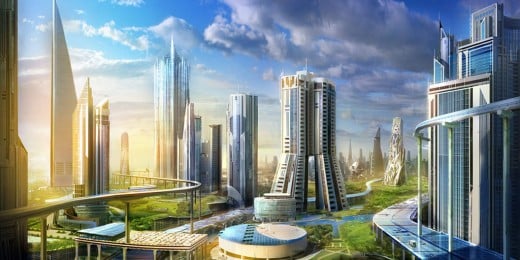
Libraries are more than books
Libraries are not only places where the stories, the recipes, the how to build a house, care for your livestock, prepare for rainstorms or drought books are kept, but they are places where people gather.
You can walk into a library and sit down and relax, read the local paper or write in your notepad. You can draw schematics or type up reports. Today you can have a cup of coffee often and chat quietly with a neighbor. Libraries provide all this without any admission cost. You don't need a ticket or have to wear a colorful bracelet. You will probably pay more to load the parking meter where you left your vehicle than you will pay in fees at the library.
The Library of Congress receives two copies of every copyrighted publication printed in the United States. That's literally millions of items each year - roughly 15,000 a day. This includes records, movies, magazines, books - of every type you can think of.
This way, 100 years from now when someone wants to know what books people were reading or what sort of movies we enjoyed in 2014, they can look at them and see them as we did.
Libraries are much more than books. They are the history of a people. They are the culture. They are the memories for future generations to look back and wonder what life was like. They are our legacy.
© 2014 Finn


